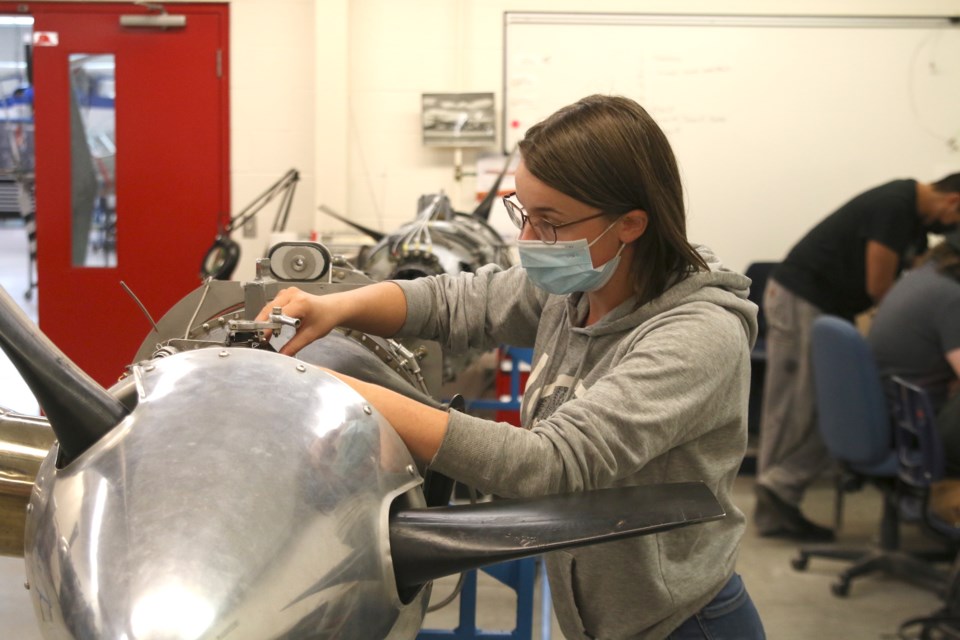THUNDER BAY - After spending the majority of last year learning virtually, students and faculty at Confederation College are excited to return to campus and satisfied that COVID-19 protocols will keep everyone safe.
“To be back on campus, we definitely have some mixed feelings. There’s definitely different sign-in procedures with COVID and everything, but there is also the feeling of being excited to be back,” said second-year aviation maintenance student Jyrah Silen.
Wednesday was the official start of classes at Confederation College, which saw many students returning to the classroom.
In an effort to keep everyone safe, COVID-19 protocols have been put in place, including screening at all entrances, a vaccine passport through the college’s safe campus app or rapid testing, as well as masking and physical distancing in classrooms.
“We are excited to have more people on campus. It’s been a long summer of empty hallways, so having everyone back is a great feeling,” said Richard Gemmill, vice president of academics at Confederation College.
Vaccination clinics are also being offered on campus for students and staff to be immunized if they have not yet taken the opportunity.
“This next week and a half is to help those students who haven’t had their vaccination done, they can still get into the building and get their vaccination shots,” Gemmill said. “For those who have not been vaccinated, they will have to go through a rapid antigen testing to get on to campus.”
“Our faculty and staff have been very responsible to everything going on. I think our staff are really excited to be back in class too. Many of the faculty are getting back to the campus for the first time in a year. I know there’s lots of anxiety around what it’s going to look like but they are really excited to be back and seeing the students.”
There is still an online component for many programs, Gemmill said, though other programs require a hands-on learning component, which was also utilized last year throughout the pandemic.
For Silen, not being able to work with aircraft and engines in-person was one of the most challenging aspects of online learning.
“Last year was challenging being online,” she said. “We definitely had to build a new skill set to be able to manage the online aspect of learning, which is new to a lot of us. We also had some aspects that were also in person, so having the combination definitely helped a lot.”
“I find the majority of the time we are being described a scenario or situation where we have to make a repair, it’s really helpful to have those training aids in person. It’s a lot easier when you’re actually able to hold something, turn it, flip it.”
Danny Greer, professor and program coordinator with the aviation maintenance program, added that it was challenging for faculty as well, who were not always able to know when students are struggling in the program.
“We need to be in the building, hands on, learning, seeing, touching all the aircraft parts and pieces,” he said. “It’s easier to do that here with all the aircraft and engines around us opposed to trying to do that from an online perspective.”
Students in the film production program were also happy to be back on campus learning together as a team.
“It’s nice. Last year we were half in class but this year we get to be all in class,” said Abel Brown. “Especially in this program, communication is a basically element for film production. So it’s kind of giving us back our life so to speak.”
Gemmill said the college is prepared to pivot back to primarily online learning if the situation changes in the fall and winter, but he is confident that the protocols that are in place should allow them to keep the campus open.
“If the chief medical officer of Ontario feels it’s too risky to remain in this open state and asks the colleges to go back to an online delivery we will absolutely do that,” he said. “But I’m really optimistic that we’ve gotten over that big hump and we have the protocols in place to keep people safe.”
